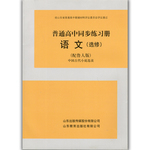题目内容
A land free from destruction , in addition to wealth , natural resources , and labor supply-all these were important 1 in helping England to become the center for the Industrial Revolution . 2 they were not enough . Something 3 was needed to start the industrial process(进程) . That “something special ” was men— 4 individuals who could invent machines , find new 5 of power , and establish business organizations to reshape society .
The men who 6 the machines of Industrial Revolution 7 from many backgrounds and many occupations . Many of them were 8 inventors than scientists . A man who is a 9 scientist is primarily interested in doing his research 10 . He is not necessarily working 11 that his findings can be used .
An inventor or anyone interested in applied science is 12 trying to make something that has a concrete 13 . He may try to solve a problem by using the theories 14 science or by experimenting through trial and error . Regardless of his method , he is working to get a 15 result : the construction of a harvesting machine , the burning of a light bulb , or one of 16 other objectives .
Most of the people who 17 the machines of the Industrial Revolution were inventors , not trained scientists . A few were both scientists and inventors . Even those who have 18 or no training in science might not have made their inventions 19 the groundwork had not been laid by scientists years 20 .
1. A. cases B. reasons C. factors D. situations
2. A. But B. And C. Besides D. Even
3. A. else B. near C. extra D. similar
4. A. possible B. effective C. necessary D. creative
5. A. production B. sources C. bases D . discoveries
6. A. employed B. created C. operated D. controlled
7. A. came B.arrived C. stopped D. appeared
8. A. less B. better C. more D. worse
9. A. real B. practical C. pure D. clever
10.A.happily B. occasionally C. unwillingly D. wholeheartedly
11.A.now B. and C. all D. so
12.A.seldom B. sometimes C. usually D. never
13.A.plan B. use C. idea D. means
14.A.of B. with C. to D. as
15.A.single B. only C. limited D. particular
16.A.few B. those C. many D. all
17.A.suggested B. developed C. supplied D. offered
18.A.little B.much C. some D. any
19.A.as B. if C. because D. while
20.A.ago B. past C. ahead D. before
1.C 本句列举了英国成为工业革命中心的因素。从句意和选项看,这些不是A情况、例子,B原因或D形势,而是天时地利等因素。
2.A 上文说“所有这些都是重要因素”,下文说“这些还不够”,显然用but表转折。
3.A 根据上文意思,既然不够(not enough),那么还需要别的因素,something else。
4.D 后面定语从句说“可以发明机器的人”,那么一定是具有创造性的人,根据句意确定D项。
5.B 短文第一句提到“自然资源”,此处提及“新的”,根据句意指开发新能源,也为下文的描述作铺垫。
6.B 此空用create与上文的invent machines相呼应,指工业革命中的发明创造。
7.A 指这些发明家的背景、职业不一样,他们来自各种背景及职业。
8.C more 与后文的than相呼应,此处more … than 表示“是、而不是”,“与其…不如”的意思。
9.C 根据句意及上下文可知该句讲述的是一心埋头于研究的纯粹的科学家。
10.D 根据上下文,这种意义上的科学家一心一意地搞研究,不必关心其研究成果的应用。因此选D,“全心全意地”。
11.D so that 引导目的状语从句,表示他工作的目的不一定是为了保证其成果能得到应用。
12.C 四个选项均为频率副词,根据句意应选C,表示发明者总想制造成有用的东西。
13.B 发明/制造有具体用途的东西,与上文的applied science(应用科学)相呼应。
14.A 不是“把科学与理论结合起来”,而是“用科学理论解决问题”,因此用of而不是with。
15.D particular表示“具体的,特定的”;发明家在进行发明创造时是有其具体的目的/
意图所在,为了得到某个具体的结果。
16.C 除了前面提到的两项之外,还有很多其他目的/意图。
17.B develop在此表示研究、开发,其他选项(A,建议 C,供应 D,提供)均不合文意。
18.A 表示have little or no training表示“很少甚至没有训练”。
19.B if 引导假设状语从句。
20.D 全句大意:如果没有科学家头几年打的基础,那些在科学领域没有受过训练的人就不可能有哪些发明创造。显然科学家的groundwork在先。

 海淀黄冈名师导航系列答案
海淀黄冈名师导航系列答案 普通高中同步练习册系列答案
普通高中同步练习册系列答案
| |||||||||||||||||||||||||||||||||||||||||||||||||||||||||||
 raph 3 refer to?
raph 3 refer to?